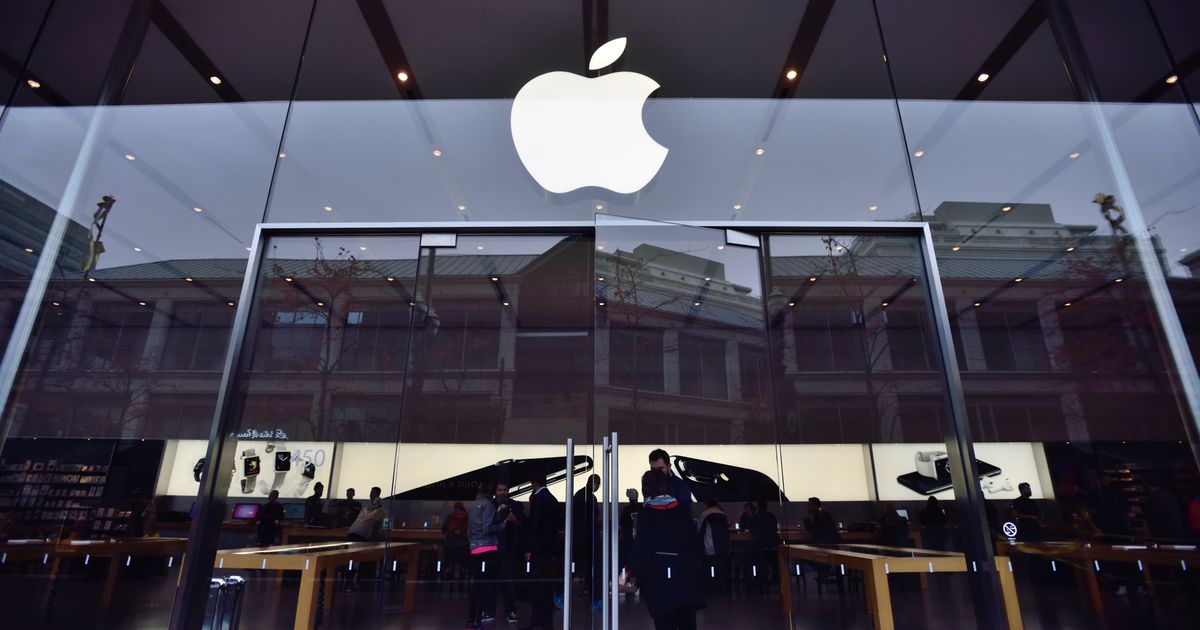Apple just sued a key iPhone partner for $1 billion

/https%3A%2F%2Fblueprint-api-production.s3.amazonaws.com%2Fuploads%2Fcard%2Fimage%2F356220%2F0c752f5e-fa38-4664-9d35-0ed44a91c0c2.jpg)
Apple just did the unthinkable: The tech giant is suing Qualcomm, maker of the iPhone’s baseband processor the smartphone’s modem for connecting to mobile networks to the tune of $1 billion.
First reported by CNBC, the lawsuit portrays Qualcomm as an extortionist over basic smartphone technology and accuses the San Diego-based chip company of withholding payments to Apple in “retaliation” for cooperating with investigators.
Apple’s move is related to another legal action from earlier this week, when the FTC filed an antitrust lawsuit against Qualcomm, alleging it was using its patents to strong-arm competitors into paying exorbitant patent royalties, even for devices that don’t use Qualcomm-made components.
Apple was prominently named in the FTC lawsuit, which also alleges Qualcomm pressured Apple in specific ways to guarantee it would use its modem tech exclusively for a five-year period, from 2011 to 2016. The agreement essentially shut out every other manufacturer of baseband processors from the world’s most popular smartphone, which the lawsuit says unfairly hampered competitors’ development. (With the iPhone 7 and 7 Plus, Apple began producing some iPhones with Intel modems.)
Apple casts Qualcomm as a lazy company that no longer innovates because its business is built around “older, legacy technologies”
In Apple’s statement about its own lawsuit, the company says Qualcomm has been charging royalties “for technologies they have nothing to do with.” Apple casts Qualcomm as a lazy company that no longer innovates because its business is built around “older, legacy technologies” and that it collects many royalties “for no reason” essentially accusing the chipmaker of being a patent troll.
Apple specifically accuses Qualcomm of withholding “nearly $1 billion” in payments in an act of corporate revenge against Apple, since it cooperated with “law enforcement agencies” tasked with investigating the chipmaker. Those investigations are what likely led to the FTC lawsuit.
Apple also gave some detail on just how large Qualcomm’s royalties are. According to the company’s statement, the royalties Qualcomm collects on the iPhone are five times those of the device’s other “cellular patent licensors” combined.
Apples lawsuit offers a rare glimpse into the behind-the-scenes dealmaking around intellectual property that goes into building the worlds most popular tech products. While lawsuitsover designs and patents happenoccasionally, the worlds most valuable company going after one of its own partners, especially one as important to the iPhone as Qualcomm, was something few could have predicted.
The lawsuit will certainly have reverberations in the wireless industry for years to come, and could lead to big changes in the cellular modem market as 5G technology the successor to 4G LTE takes hold. In 2016, Qualcomm held a whopping 65 percent of the market for mobile baseband modems (and 50 percent of the revenue), figures that could tumble as these lawsuits proceed and competitors pounce.
In addition, considering Apple has already begun to use competing modems in the iPhone 7, the incendiarytone of Apples statement implies Apple will show Qualcomm the door for the iPhone 8, expected to be unveiled in the fall.
Qualcomm responded to Apple’s lawsuit late on Friday, with the company’s executive vice president and general counsel, Don Rosenberg, calling the accusations “baseless.” He also said Qualcomm was eager to have the case go to court since it would involve “full discovery” of Apple’s practices, which comes across as a thinly veiled counter-threat.
Apple’s full statement, sent to Mashable, is below, followed by Qualcomm’s, then Apple’s full legal filing:
For many years Qualcomm has unfairly insisted on charging royalties for technologies they have nothing to do with. The more Apple innovates with unique features such as TouchID, advanced displays, and cameras, to name just a few, the more money Qualcomm collects for no reason and the more expensive it becomes for Apple to fund these innovations. Qualcomm built its business on older, legacy, standards but reinforces its dominance through exclusionary tactics and excessive royalties. Despite being just one of over a dozen companies who contributed to basic cellular standards, Qualcomm insists on charging Apple at least five times more in payments than all the other cellular patent licensors we have agreements with combined.
To protect this business scheme Qualcomm has taken increasingly radical steps, most recently withholding nearly $1B in payments from Apple as retaliation for responding truthfully to law enforcement agencies investigating them.
Apple believes deeply in innovation and we have always been willing to pay fair and reasonable rates for patents we use. We are extremely disappointed in the way Qualcomm is conducting its business with us and unfortunately after years of disagreement over what constitutes a fair and reasonable royalty we have no choice left but to turn to the courts.
Qualcomm’s statement:
While we are still in the process of reviewing the complaint in detail, it is quite clear that Apples claims are baseless. Apple has intentionally mischaracterized our agreements and negotiations, as well as the enormity and value of the technology we have invented, contributed and shared with all mobile device makers through our licensing program. Apple has been actively encouraging regulatory attacks on Qualcomms business in various jurisdictions around the world, as reflected in the recent KFTC decision and FTC complaint, by misrepresenting facts and withholding information. We welcome the opportunity to have these meritless claims heard in court where we will be entitled to full discovery of Apples practices and a robust examination of the merits.
Updated at 8:40 p.m. ET on 1/20/17 with Qualcomm’s statement.
Read more: http://mashable.com/2017/01/20/apple-sues-qualcomm/